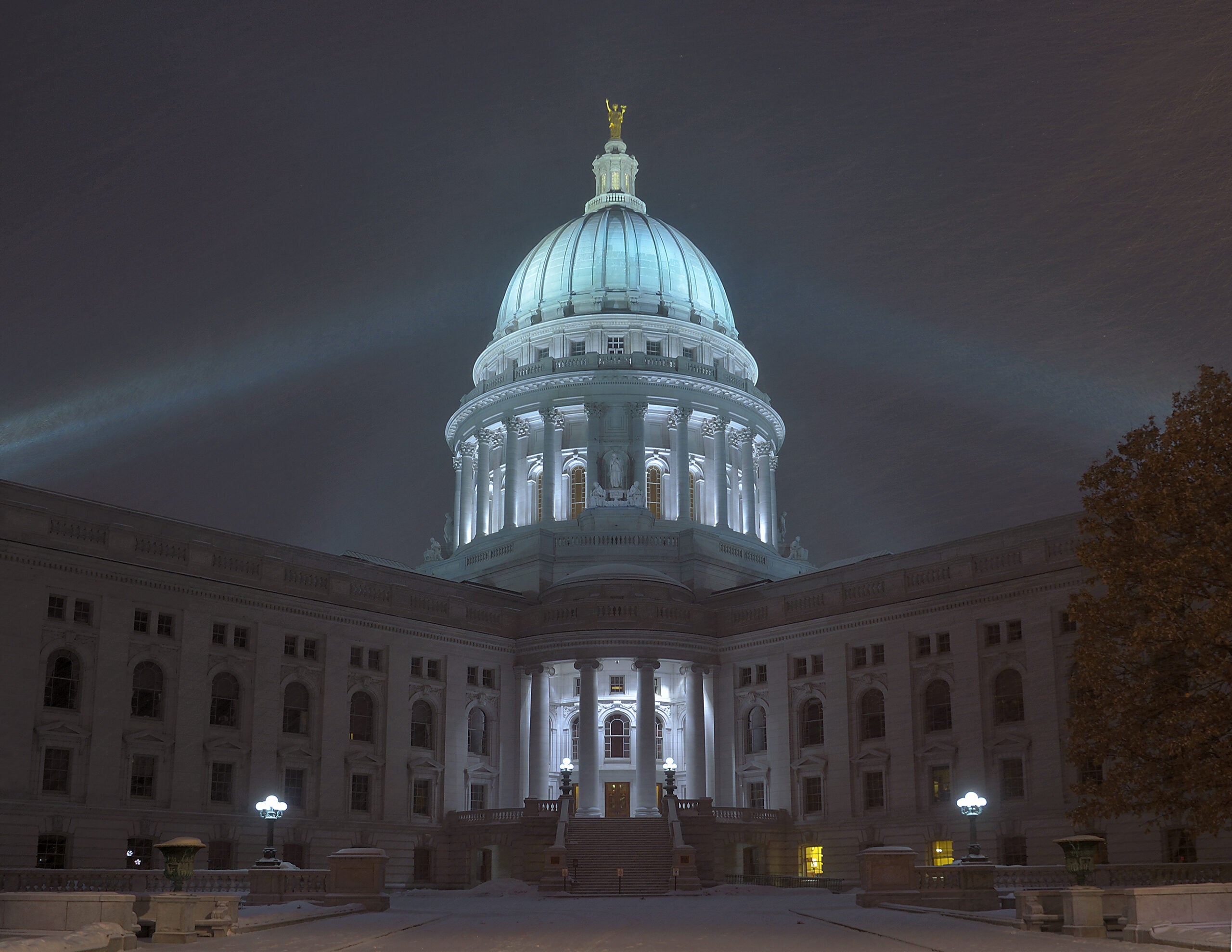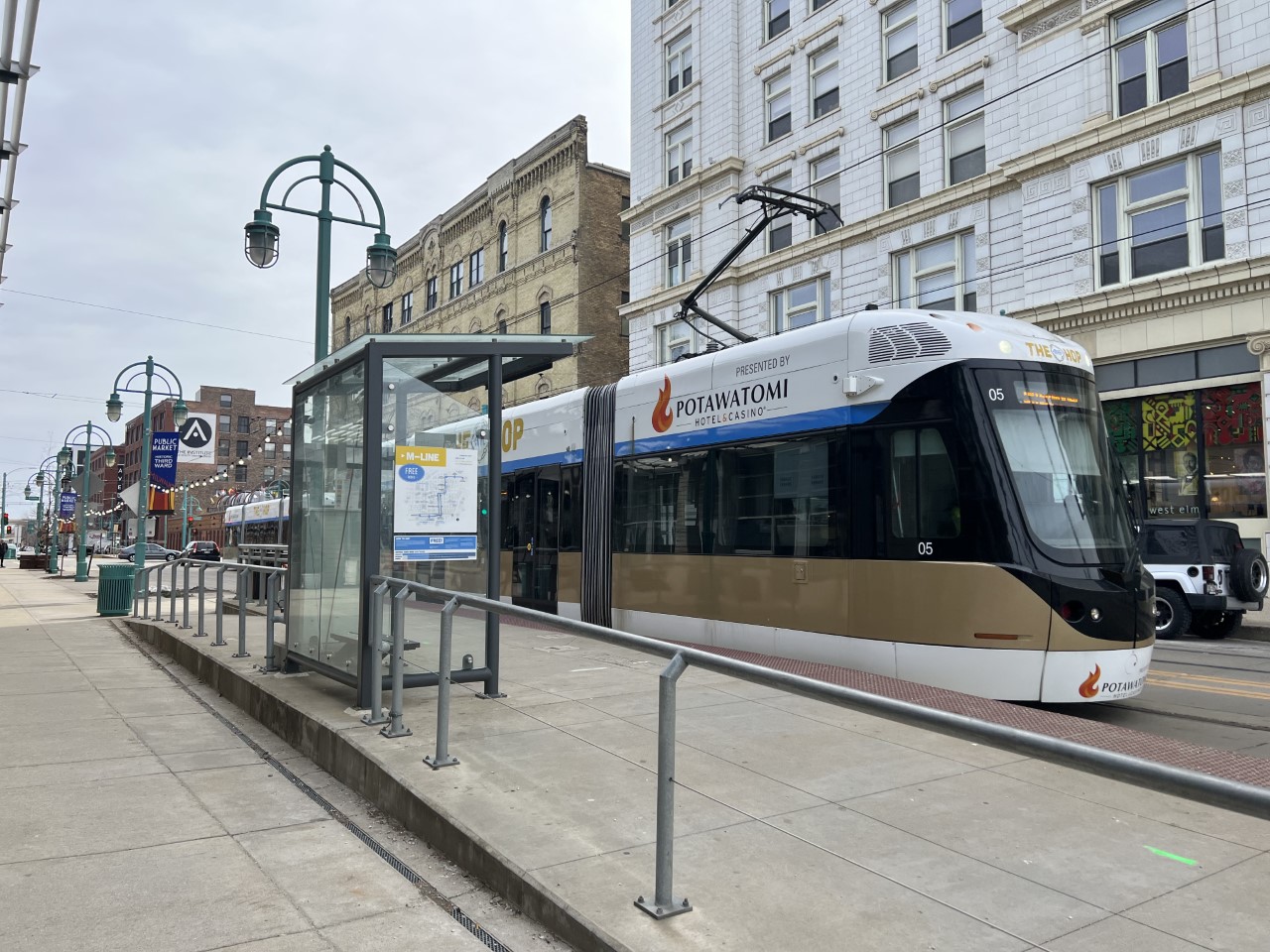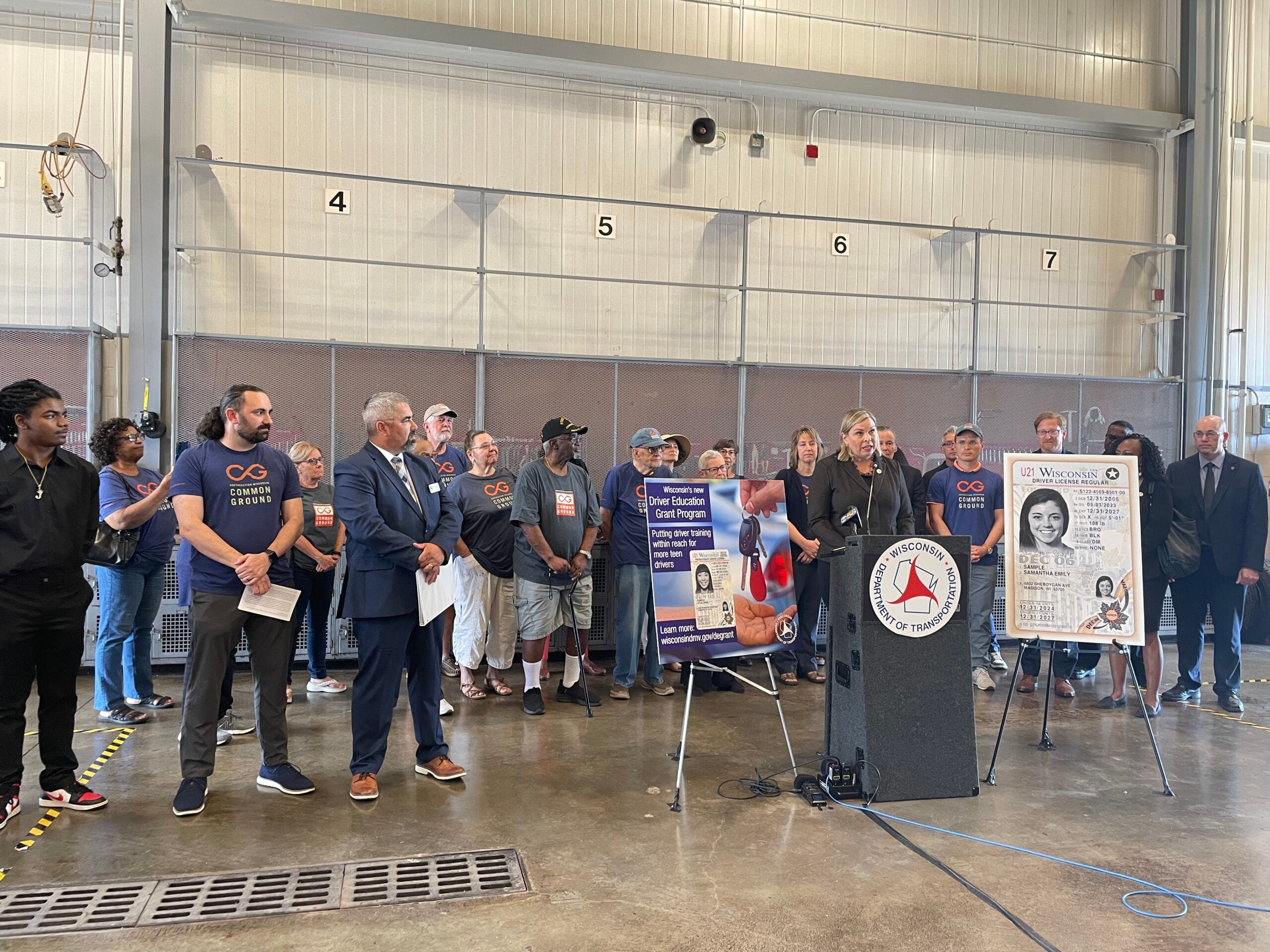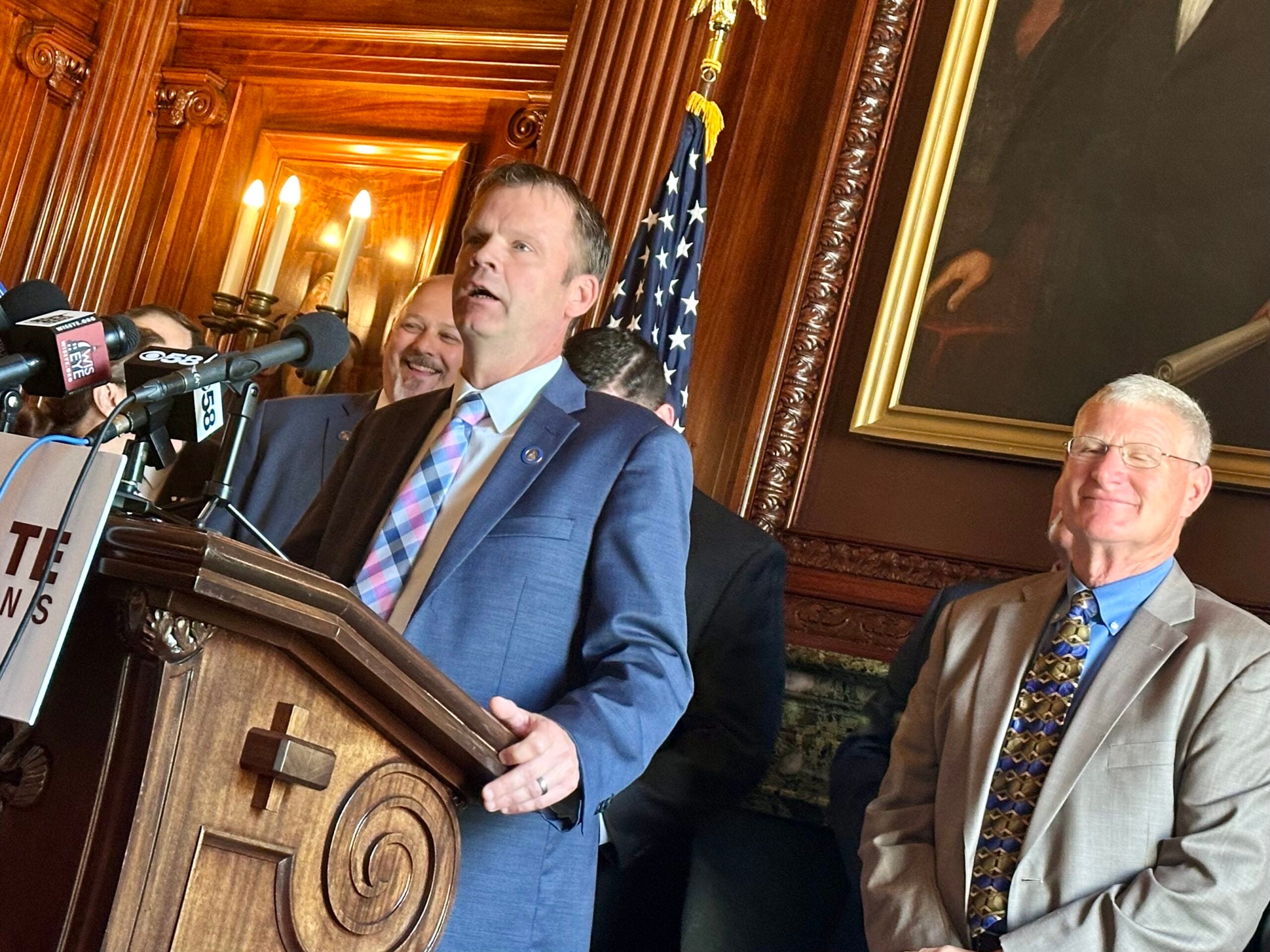Republicans in the state Legislature welcomed the largest majorities their party has seen in decades to the Wisconsin capitol Tuesday, though top GOP leaders didn’t necessarily agree on what they should do with that power.
Sixty-four Republicans and 35 Democrats were sworn in on Inauguration Day in the Assembly, while 20 Republicans and 13 Democrats were officially sworn into the Senate.
“Let’s take this great responsibility and run with it this legislative session,” said Assembly Speaker Robin Vos, R-Rochester, in remarks to his colleagues during the inauguration.
News with a little more humanity
WPR’s “Wisconsin Today” newsletter keeps you connected to the state you love without feeling overwhelmed. No paywall. No agenda. No corporate filter.
Vos said his top priorities include closing a nearly $1 billion projected transportation budget gap, “modernizing” the state’s school funding formula, reforming the state tax code and addressing the state’s worker shortage.
“We need an updated funding mechanism that works for every school and every child,” Vos said of the potential funding formula updates.
The changes would seek to compensate for declining school enrollment, particularly in rural districts.
“A system that simply gives out state dollars based on population needs to be updated to recognize the fact that more school districts have declining student populations than those that are increasing,” Vos said.
Whether or not that agenda is possible will hinge largely on whether Vos and his colleagues can reach agreements with Gov. Scott Walker and Senate Majority Leader Scott Fitzgerald, R-Juneau.
Speaking to reporters after session Tuesday, Fitzgerald cast doubt on the prospects of rewriting the school funding formula.
“That doesn’t seem like something that is going to happen,” Fitzgerald said. “The reality of getting that piece of legislation through either house I think would be very difficult.”
Fitzgerald also weighed in on the transportation budget, which is expected to be the marquee issue of upcoming state budget negotiations. Fitzgerald said he was open to cutting taxes in the general fund as a tradeoff for increasing gas taxes or vehicle registration fees to pay for roads, but he said he wasn’t sure his fellow Republicans would feel the same way.
“I just don’t have a handle on that right now, whether or not that’s palatable,” Fitzgerald said. “I certainly have an idea that the caucus is somewhat divided on that.”
While Fitzgerald has generally been on the same page as the governor when it comes to transportation funding, Vos has sparred with Walker.
Vos said Tuesday he hopes Walker will present changes to the proposed state Department of Transportation budget, which would fill a budget shortfall by delaying several road projects and borrowing $500 million.
“If Gov. Walker just simply rubber stamps what the DOT gave him in September, I think that’s going to be a problem for our caucus,” Vos said.
Vos and other Assembly Republicans have said that plan will cause debt to grow and cause Wisconsin’s road conditions to deteriorate.
As negotiations are set to begin, the DOT is facing some administrative transition. Former DOT Secretary Mark Gottlieb resigned from his post last week and will be replaced by state Department of Safety and Professional Services Secretary Dave Ross.
“I hope that Dave Ross will continue on the tradition that Secretary Gottlieb did, which was honesty and candor, and telling us what we needed to hear, even if sometimes we didn’t want to hear it,” Vos said.
Democratic leaders in the Assembly and Senate stressed bipartisan cooperation on the first day of session.
“I think there are some huge challenges our state has,” Assembly Minority Leader Peter Barca, D-Kenosha, said. “This could be a very productive session.”
Barca said he believes Democrats can work with Republicans on issues such as transportation, making family-supporting jobs and growing the middle class.
Senate Minority Leader Jennifer Shilling, D-La Crosse, said Republicans should look to Minnesota’s example and invest more in education to grow the economy.
“Without adequately investing in our future, Wisconsin will continue to lag our neighboring states in job growth and prosperity,” Shilling said.
Fitzgerald said one of the first bills to pass the Senate would deal with high-capacity wells, an issue that stymied GOP lawmakers last legislative session. Other prominent legislation expected to surface this session includes a bill that would allow concealed weapons in buildings on college and university campuses as well as further changes to the state’s prevailing wage laws.
Wisconsin Public Radio, © Copyright 2025, Board of Regents of the University of Wisconsin System and Wisconsin Educational Communications Board.







